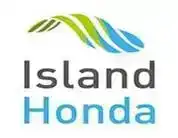Paramedics concerned about quality of care under new ambulance contract on Maui and Kauaʻi

Update: 6:41 p.m., Sept. 5, 2023
Paramedics associations on Maui and Kauaʻi are worried about the state’s standards for quality of care during emergencies after details surrounding a Request for Proposals surfaced.
The state Department of Health had sought bids for ambulance service on both islands and has since awarded a nearly $59 million contract on Maui, and a $32 million contract on Kauaʻi to Falck Northwest Corp. The three-and-a-half year contract starts on Jan. 1, 2024, and marks a switch from current provider AMR, according to state records.
Paramedics organizations on both islands say that under the RFP that went out, there was no minimum level of Advanced Life Support coverage, with no preferred ratio between Advanced Life Support and Basic Life Support ambulance deployment.
Advocates of the current level of staffing say the actions would diminish the Emergency Medical Services systems and called the diminished standards “grossly irresponsible,” “negligent” and “profoundly hurtful” in the wake of the worst mass casualty in Hawaiʻi’s modern history.
The Department of Health tells Maui Now it has received from American Medical Response timely submitted protests concerning the non-selection of AMR for award of the contracts for Comprehensive Emergency Medical Services for 911 Ground Ambulance Transport for the counties of Maui and Kauaʻi, that were issued by its Emergency Medical Services & Injury Prevention System Branch.
The filing of these protests triggers suspension of any further action on contract award and execution until a disposition is made of the protests. Until that time, DOH reports it is unable to provide comment or other information regarding the RFPs and protests.
Paramedics associations on both islands drafted a letter outlining their concerns. In the document the groups said the lack of minimum requirements means the DOH could accept a company providing just one ALS ambulance for an entire country, and allow the rest to be Basic Life Support, meaning the ambulance is staffed with basic EMTs, not paramedics.
According to the groups, paramedics are equipped to apply extensive knowledge and experience to conduct an advanced assessment. They are able to: insert breathing tubes in patients with respiratory failure, and treat life-threatening lung collapse; can use EKGs to identify and respond to potentially life-threatening cardiac conditions; and can insert IVs and administer dozens of different life-saving medications.
During the recent firestorms, Maui paramedics set up medical incident command and triage, and in just the acute first hours of the incident, treated approximately 60 patients and transported 32.
“EMS providers performed valiantly despite innumerable challenges and threats to their own lives. They provided ALS to more burn patients in one night than most EMS systems see in a year. When flames blocked regular routes to Maui’s only hospital, ALS providers continued lengthy care of their patients, and even had to transport some via a treacherous 40-mile northern route along sea cliffs,” according to the letter.
“Integral to EMS management of the medical aspect of this disaster was Maui’s system design as a 100% ALS system,” the Paramedics associations said.
The organizations are asking for a immediate stay of the process, and that the current levels of service, including ALS providers on every unit be maintained.
Currently staffing includes the following according to state records:
- Maui has eight ALS ambulance units and one Rapid Response Unit.
- Molokaʻi has one ALS ambulance unit. A second unit has been authorized for FY24.
- Lānaʻi has one ALS ambulance unit.
- ALS units are in service 24 hours per day, 7 days per week, 365 days per year.
- BLS units are utilized as the service provider deems appropriate.
- The DOH does not manage staffing schedules.
Representatives with the Maui County Paramedics Association, who represent both EMTs and paramedics on Maui said, “flaws in the parameters of the contract are actually more concerning, and a ‘bigger story,’ than to whom the contract was awarded.”
“Our unions are not taking a position for or against any contract applicant. We are, however, extremely disturbed by DOH’s upending accepted standards for our EMS systems in Maui and Kauaʻi, reducing accountability for whatever contractor prevails,” according to email communication.
Maui Now reached out to the state Department of Health for comment and is awaiting response. This is a holiday weekend and requests for comment were initiated on Sunday.
*This post may was updated to reflect DOH response.










